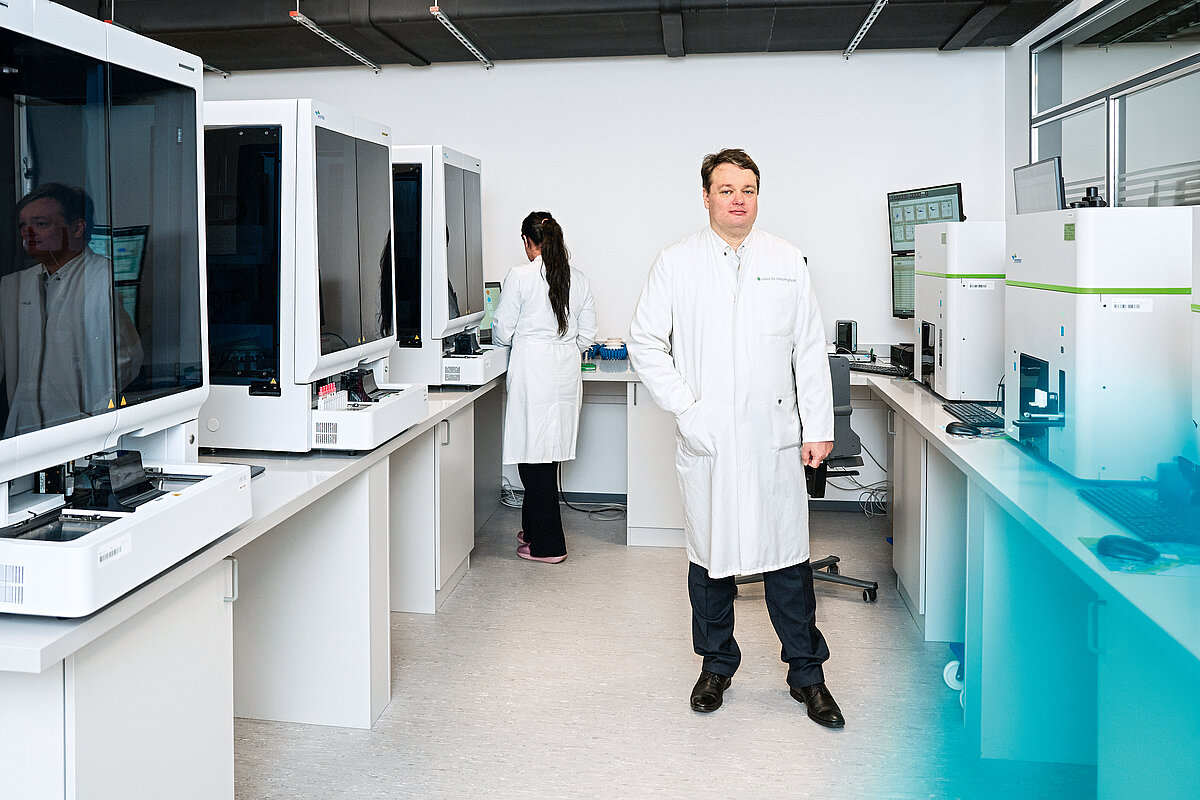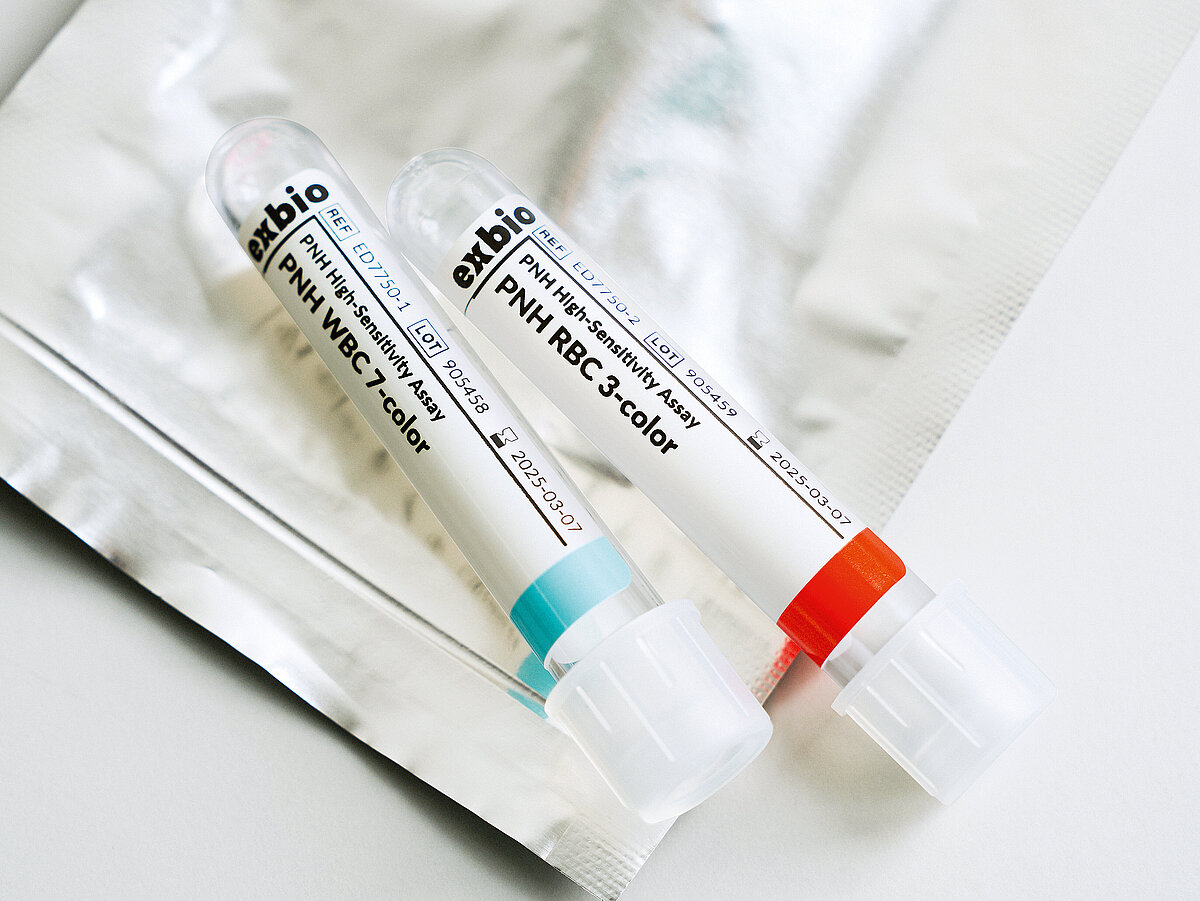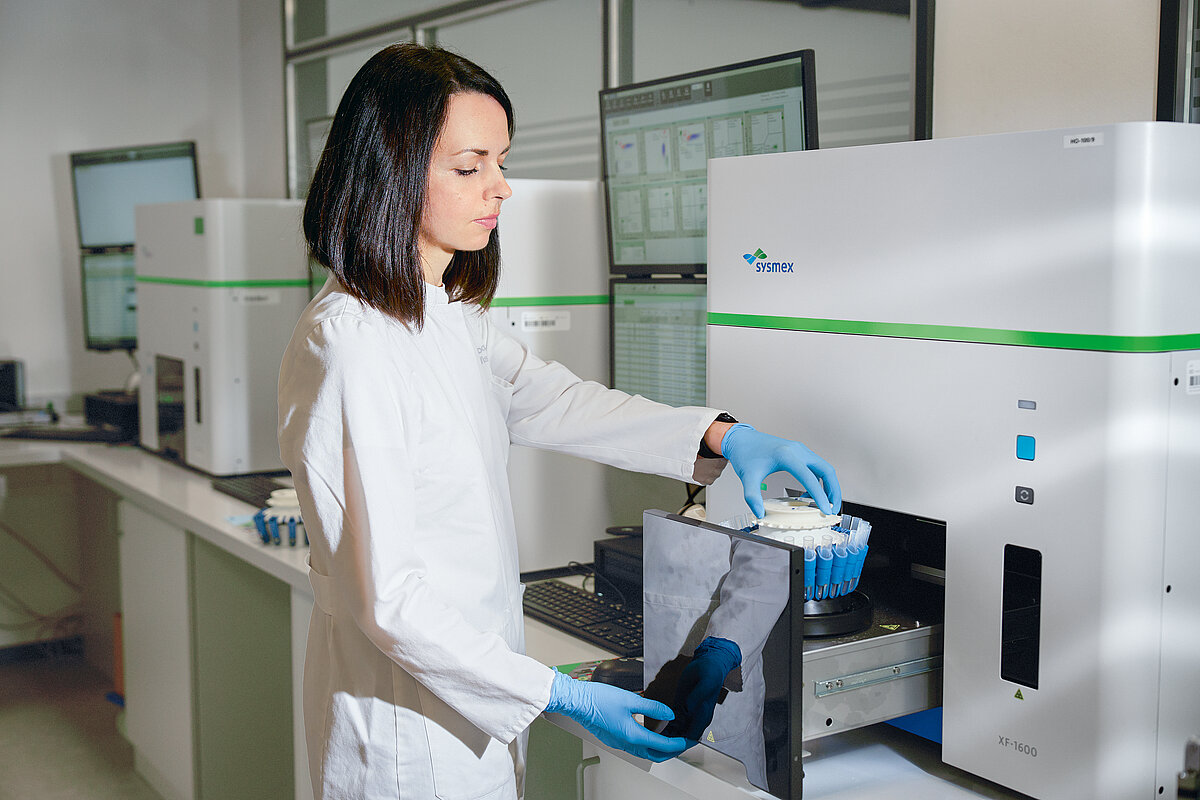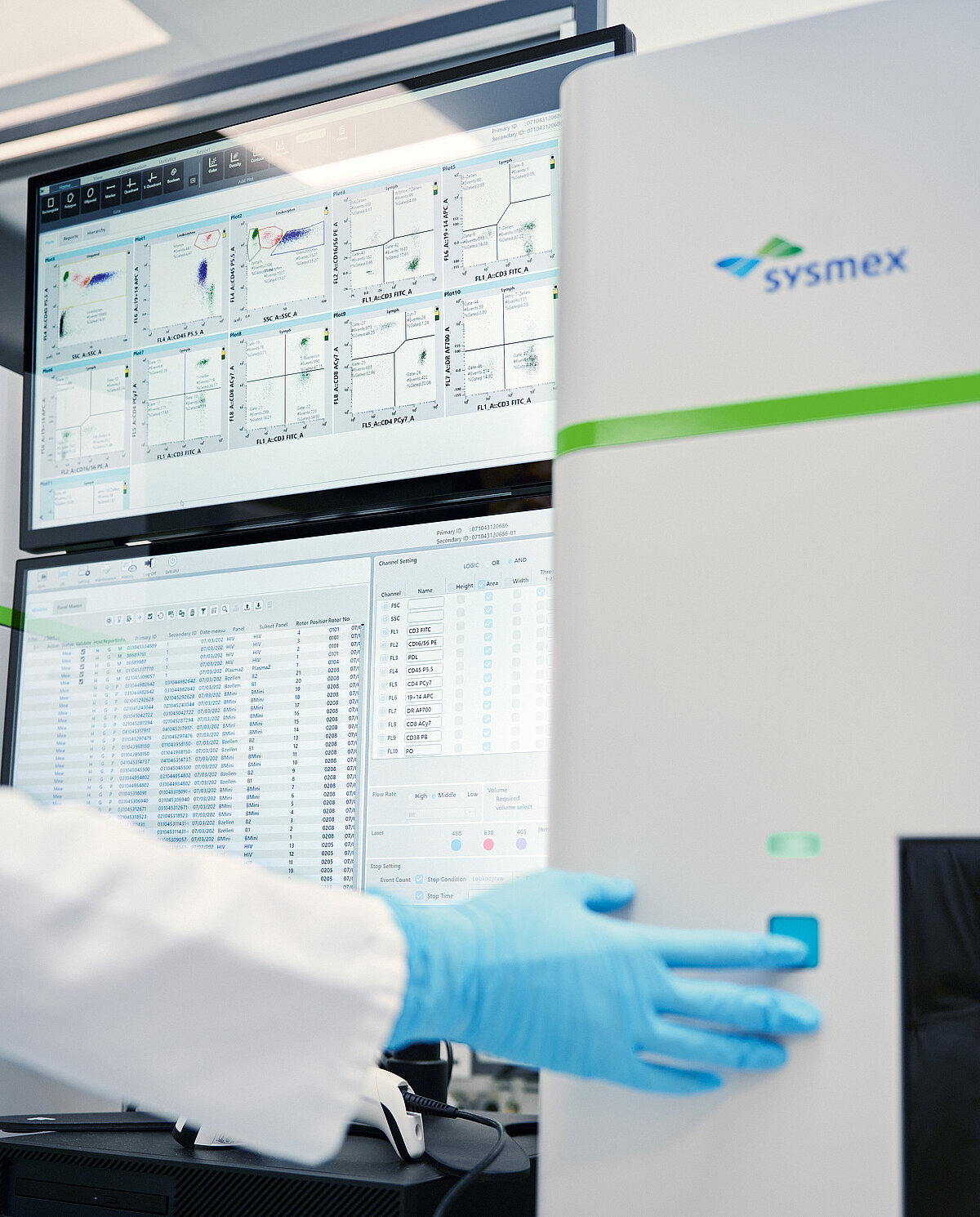PNH diagnostics with Flow Cytometry
Sysmex Xtra article | Edition 2/2024
Text: Anja Lang
Photos: Marina Weigl
For PNH diagnostics, the large commercial laboratory Dr Wisplinghoff in Cologne has been using the flow cytometry solution from Sysmex for around a year, using the only CE-IVD-certified test for PNH in Germany.

Dr Marthe Klein, Product Manager at Sysmex Germany, spoke with Dr Dennis Hoffmann, Technical Laboratory Manager at the Dr Wisplinghoff laboratory, about the laboratory's experience with the changeover.
Dr Hoffmann, the Dr Wisplinghoff laboratory is a traditional family business. How large is your catchment area?
Since its foundation 47 years ago, our laboratory has grown continuously. In addition to the central laboratory in Cologne, we now operate a further 20 satellite laboratories, which employ a total of over 60 doctors. As a result, we are now able to serve hospitals, universities, research institutes and doctors in private practice from northern Germany to around the Moselle area.
How many flow cytometry samples do you receive daily?
For flow cytometry we get around 100 samples a day. Around 20 of these are analysed with either a regular or an extended lymphocyte subset panel, for example to support HIV diagnostics or for the assessment of infections. The remaining 80 or so samples are mainly analyses on haemato-oncological issues ranging from vaccination to leukaemia or random expressions in the context of myelodysplastic syndrome issues, and occasionally stimulation tests in connection with naturopathic and complementary medicine approaches.

Paroxysmal nocturnal haemoglobinuria (PNH) is a genetic blood disorder in which the erythrocytes lack an important protective protein. The body's own immune system can then no longer recognise these cells as the body's own and mistakenly destroys them. As a result of the increasing anaemia, various symptoms such as severe exhaustion, abdominal, head and muscle pain, impotence, swallowing and breathing problems can occur, which massively impair the quality of life of those affected. In addition, internal organs such as the lungs and kidneys are permanently damaged and thromboses can occur. Fortunately, there are now good treatment options. However, early diagnosis is crucial for success. For PNH diagnostics, the large commercial laboratory Dr Wisplinghoff in Cologne has been using the flow cytometry solution from Sysmex for around a year, using the only CE-IVD-certified test for PNH in Germany.

Which clinical conditions are you primarily confronted with?
These are predominantly chronic lymphocytic leukaemias and B-cell lymphomas, as well as individual entities of MALT, which stands for mucosa-associated lymphoid tissue, and also marginal zone and plasma cell neoplasms, acute and chronic leukaemias and many more.
That really is a broad spectrum. For about a year now, you have been using three Sysmex XF-1600 flow cytometers, three PS-10 sample preparation systems and three Rotolavit II-S wash centrifuges. What has changed in the workflow as a result?
Thanks to automation, especially through the pipetting support of the PS-10, we have far fewer manual steps compared to the systems we previously used. The main advantage of this specially coordinated system is that the complete rotor with the pipetted tubes can be placed directly into the washing centrifuge as it is, and can then be moved directly to the flow cytometer - without needing to transfer any individual tubes. This helps to avoid human error caused by mix-ups during manual labelling and transfer, and is therefore also a great relief for employees. The fact that these three systems work independently of each other, i.e. each system works on its own, also gives us a high degree of flexibility in our workflow.
In the flow cytometry laboratory, you also carry out special diagnostics for the very rare blood disorder PNH. How often do you do this test?
PNH diagnostics plays an important role within our flow cytometry laboratory. We observe waves of test requests: sometimes no new requests come in for a week or more and then suddenly we receive five to nine samples, of which, unfortunately, one is often positive. Of course, we also Iook after existing patients who have already tested positive and for whom appropriate follow-up checks must be carried out every four weeks or so.
“We carry out PNH diagnostics several times in some weeks. That's amazing for such a rare disease.”
An automated system is a great help when processing up to 100 samples a day
Could you please briefly describe the various steps of the analysis?
After the sample is received, it is pre-analysed by visual inspection, to check whether the sample is fresh enough to be pipetted. The sample is then transferred to the PS-10, which pipettes it into the tubes and adds the reagent. The material is then centrifuged, washed and analysed on the flow cytometer. The results are then analysed and, finally, assessed by a physician.
For PNH diagnostics, you have been using the only CE-IVD PNH test, DryFIowEx PNH High-Sensitivity Assay Kit, for some time now. What changes in diagnostics have you observed as a result?
The PNH kit is definitely an improvement and it complies with the current international guidelines. In particular with the erythrocytes we see a much better separation . At the single antibody Ievel, a significant elimination of false positive results can be observed through the use of the kit. The results are therefore much more accurate.

Is there still something special about PNH evaluation, or is it now considered routine diagnostics?
Overall, I can say that with this analysis the main focus is no longer on the fine-tuning of gates. Because the gates are actually well-placed in most cases. Sometimes for granulocytes a readjustment is necessary, especially if the sample is a bit older. This is something special, so to speak, but I wouldn't call it a real challenge. We actually perform PNH diagnostics several times a week. This is quite astonishing for such a rare disease and is of course also due to the fact that - in addition to new diagnoses - we Iook after a relatively large number of patients who have aIready tested positive and need to be regularly monitored . As a result, PNH diagnostics has actually become practically a routine diagnostic procedure for us.

SUMMARY
- The family-run large commercial laboratory Dr Wisplinghoff processes around 100 samples a day using flow cytometry, with PNH test requests coming in several times a week
- For PNH diagnostics, the laboratory has been using the CE-IVD-certified PNH test DryFIowEx PNH High-Sensitivity Assay Kit for a year now

